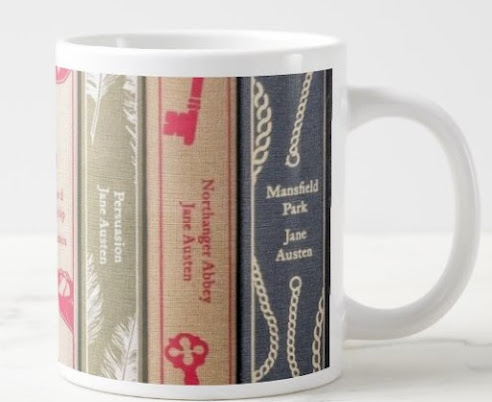I'm currently in the middle of Jane Austen's England by the husband and wife team of Roya and Lesley Adkins. It's history made up a mix of documents, letters, and some references to Austen's writings, which is pretty easy to read for nonfiction, though I do sometimes tire of some of the details that seem to be thrown in simply because the documentation for them is on hand.
While this book refers to a famous author to capture the attention of potential readers, it ignores another one completely in recounting one way men sought to dissolve marriages without acts of Parliament -- by selling their wives. Though this practice was, in fact, illegal, it happened more than once.
Here's the account on pages. 17-18:
One way of ending a wretched marriage was for a husband to sell his wife -- regarded as the poor man's divorce. Some sales were by consent of the wife, but at other times they were carried out against her will. Leaving a wife to a public place with a rope tied around her neck and then selling her, like an animal at market, was thought -- wrongly -- to be a legal and binding transaction, transferring the marriage to somebody else. Commentators considered wife-selling a barbaric practice, but it persisted to the late nineteenth century, and John Brand noted: "A remarkable superstition still prevails among the lowest of our Bulgar, that a man may lawfully sell his wife to another, provided he deliver her over with a halter about her neck.It is painful to observe, that instances of this occur frequently in our newspapers."Two newspaper account of wife sales are cited. The second one also entails the sale of the couple's child in January 1815. It included a copy of the deed of sale:
"I, John Osborn, doth agree to part with my wife, Mary Osboren, and child, to William Sergeant, for the sum of one pound, in consideration of giving up all claim whatever, whereunto I have made my mark as acknowledgement."What struck me most about these account is that absence of a reference to Thomas Hardy's The Mayor of Casterbridge. In the novel, some of the guilt that pervades Hardy's work is the realization that the sale does not effectively dissolve the marriage. The shame of it is central to the plot.
In a Victorian Web post on the wife sale in the novel, Hardy's justification for the title character's wife going along with the sale is cited.
It may seem strange to sophisticated minds that a sane young matron could believe in the seriousness of such a transfer; and were there not numerous other instances of the same belief the thing might scarcely be credited. But she was by no means the first or last peasant woman who had religiously adhered to her purchaser, as too many rural records show.A 1962 Macmillan edition included notes from editors Andrew A. Orr and Vivian De Sola Pinto that attest to Hardy's having looked into wife sales in newspapers from the early 1800s:
Thomas Hardy had heard of such a case at Portland [not far from Dorchester, on the English Channel], and that it suggested this incident to him. In the "Observer" of March 24, 1833, the following extract from the "Blackburn Gazette" appeared: "Sale of a Wife--A grinder named Calton sold his wife publicly in the market place, Stockport, on Monday week. She was purchased by a shop-mate of the husband for a gallon of beer. The fair one, who had a halter round her neck, seemed quite agreeable."
Keith Wilson cites additional instance in the 1997 Penguin edition (revised in 2003). He observes that Hardy copied into three such examples into his "Facts from Newspapers, Histories, Biographies, & other chronicles" notebook (now in the Dorset County Museum, Dorchester) One article describes a sale that takes place in the same time period as the sale in the novel:
one of these entries, dated 6 December 1827, is particularly relevant: 'Selling wife. At Buckland, nr. Frome, a labring [sic] man named Charles Pearce sold his wife to a shoemaker named Elton for £5, & delivered her in a halter in the public street. She seemed very willing. Bells rang.' See Christine Winfield, "Factual Sources of Two Episodes in The Mayor of Casterbridge(Nineteenth-Century Fiction 25 [1970], 224-31. (Page 328)No halter involved in the sale of The Mayor of Caterbridge. In fact, the wife throws off her customary meekness in leaving he man who sold her to a complete stranger. She flings her ring off and throws it at him. She also expresses her expectation for a better future for herself and her daughter, having had "nothing but temper" with her husband.
Related post:
http://uncommoncontent.blogspot.com/2013/06/jane-austens-heroines-from-extroverted.html

